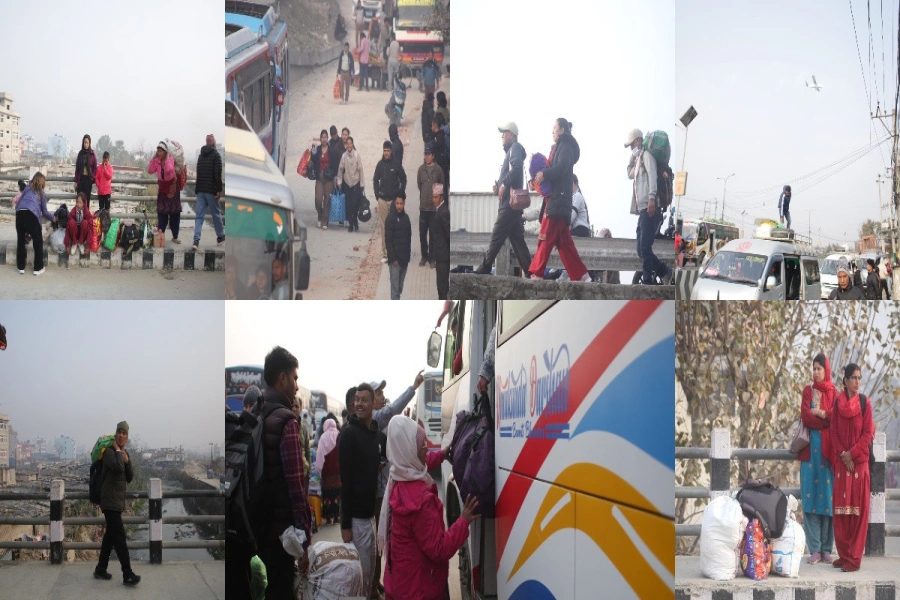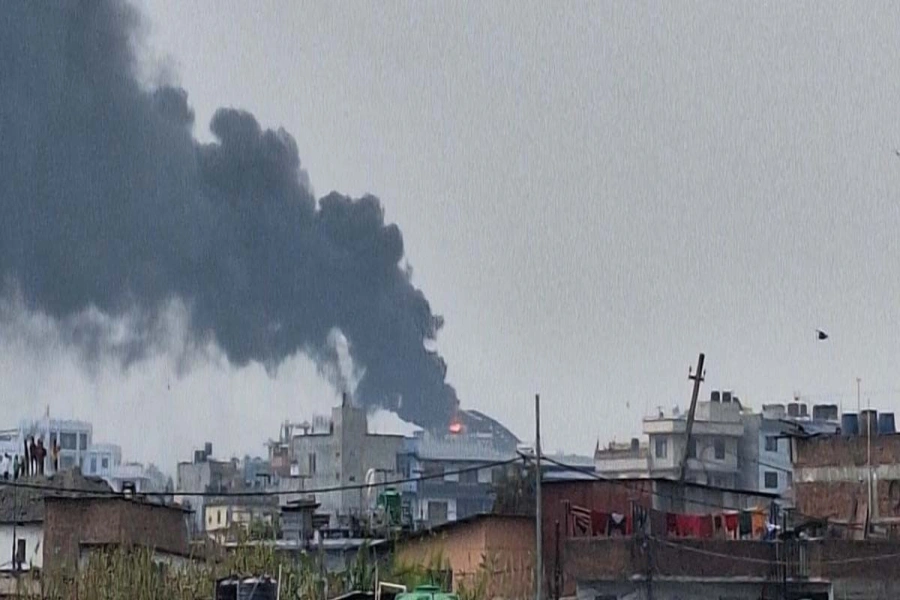Ratnanagar, Aug 2: Are you happening to stop your vehicle somewhere along the bio-corridor inside the Chitwan National Park (CNP) for any unwarranted activities or defecation? Beware! You may be caught and booked. You will be under surveillance of CCTV cameras all the time during your travel through the road in the area.
Do not get surprised. The purpose is for good - to protect wild animals from being hit and killed by passing vehicles. The campaign follows the killing of many wild animals straying from the CNP being crushed under the wheels of passing vehicles or being hit by running vehicles.
Last year alone, 15 rare wild animals were killed after being hit by passing vehicles, according to data with the CNP. The campaign has already come into practice at Tikauli forest along the corridor that links Bharatpur of Chitwan and Ratnanagar and is bearing fruit.
The CNP is home to wild animals including endangered like Royal Bengal tiger, one-horned rhino and elephant and it is an urgent need to protect them for they are fast being wiped off from the face of the Earth.
In the first phase, works are underway to make drivers aware of the rules and penalty, says Chief Conservation Officer of the CNP Ram Chandra Kandel. "Those found flouting the rules will be booked," he adds.
Recently last Wednesday, a bunch of people gathered at a place along the road alongside Nepal Army, Nepal Police and forest guards in their uniform. Fearing for being dragged into problems, some motorcyclists in question reversed and returned to where they came from, mistaking it for a security check. However, this was a part of the campaign where drivers were made aware of the rules and punishment with a slogan 'One Minute for Conservation'.
"It has been just a week since the campaign launched. It will take time for drivers to become aware," Kandel says of the effectiveness of the campaign.
While talking to CNP Ranger Sushil Jha, a man driving his truck (Ba 2 Aa 6450) laden with stones heading to Narayangadh from Tandi stopped somewhere along the road, stepped out and urinated. Later, Jha grilled the driver for some minutes and informed him about the campaign, the rules and punishment. In response, the driver nodded with a hint that he would abide by the rules from the next time. Drivers are also bound not to exceed the speed limit of 40 kilometers per hour in the area.
"Drivers should be aware of their being under surveillance of CCTV cameras all the time. They are also bound not to stop anywhere in the area, control their speed-limit and not to litter," says Conservation Officer of the National Trust for Nature Conservation Shashanka Poudel about the rules drivers should follow.
The total 10 CCTV cameras have been installed in the seven kilometers area of the road, with financial support of the World Wildlife Fund and coordination of the CNP, buffer zone, Nepal Army, Nepal Police, the District Administration Office and the District Forest Office.
Kandel believes that installation of CCTV cameras means it will help in numerous ways in making the campaign effective.
Last week, it was around 1 am when a Royal Bengal tiger showed up on the road, trying to cross the road only to take a U-turn and return to where it came from with the flashlights of running vehicles creating difficulties in its attempt. Not later than one minute, another passenger bus came and made a stop at the place and unloaded the passengers there for defecation.
"Anything could have happened there if the passengers had encountered the tiger face to face. Lives of the passengers might have been at risk and that of the tiger as well," says Kandel.
This is just a case in point, he adds. "There are not always necessarily threats to lives of wild animals. Lives of human are also at risk due to passing vehicles making a rampant stop in the area," he says.
Last year alone, 15 rare wild animals were hit and killed by passing vehicles, but only four vehicles were caught and faced action. "Had there been CCTV cameras installed, all the vehicles would have been taken under control and faced action," says Kandel about the importance of the installation of CCTV cameras.
"From now on, vehicles found hitting and killing wild animals in the area will not get away."
Talking about their next plan in relation to the protection and conservation of wild animals, Kandel says that sensitive areas in Sauraha would also be kept under a monitoring with the installation of CCTV cameras and drivers found violating rules would be booked.
One found hitting and killing a wild animal with his or her vehicle in the area prohibited for making a haphazard stop will be fined Rs 20,000 and sentenced to up to two years in prison, according to existing laws.
The degree of the punishment may increase in case endangered wild animals like one-horned rhino, Bengal tiger elephant are hit and killed by a passing vehicle, the CNP says. RSS
CIAA files corruption case against 12 officials for allowing co...






-1200x560-1772467693.webp)
































